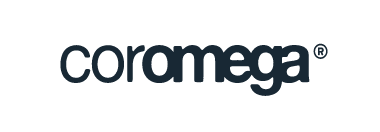We all know those people who don’t take any days off; not from work, or from working out. The truth is, they are harming their body more than they are doing their body good. Rest days and post-workout periods are crucial phases to provide your body with sufficient time to repair and regenerate. Our body’s best shot at recovery comes when we take a holistic approach, focusing on sleep, stress management, and what we will focus our attention on in this article: nutrition.
The National Academy of Sports Medicine (NASM) looks at the following pyramid approach to utilize nutrition to reach optimal muscle recovery:
- Energy balance/availability
- Macronutrients
- Micronutrients
- Hydration
- Nutrient timing
- Supplements

Energy
Energy is key in the recovery process. The NASM suggests focusing on total energy, type of energy, and energy timing. This means that before you start working out, pay attention to how many calories you are consuming, and ensure what you eat will support your body in whatever type of activity you are about to complete. A great place to start is to focus on carbohydrates to provide the body with energy and restore lost glycogen stores, protein for muscle repair, and healthy fats to curb inflammation.
Macronutrients
We just touched on these three above when discussing energy; carbs are the body’s primary fuel source, and probably the most important macronutrient to focus on in recovery. Protein consumption is also important, and helps the body stimulate muscle synthesis and to facilitate muscle repair too. Lastly, fats are an important energy source and assist hormone and inflammation production. Recommended forms of fat include dark leafy green vegetables, flax/hemp seeds, walnuts, cold-water fish, grass-fed beef, eggs. Omega-3s can contribute to your fat intake, and we recommend our Coromega Omega-3, Omega-3 Max, or the Vegan DHA Max to help you meet your omega-3 goals.
Micronutrients
These include vitamins and minerals that support growth, metabolism, and overall physical well-being. As it states in the name, micronutrients are required in small quantities in our body; the best part is, if you have generally a well-rounded diet, you are most likely getting all of the micronutrients your body needs.
Hydration
According to the NASM, water regulates body temperature, lubricates joints, and transports nutrients. Signs of dehydration can include fatigue, muscle cramps, and dizziness. During the recovery phase, staying hydrated can help stimulate blood flow to the muscles, which can reduce muscle pain. In addition, hydration can help flush out toxins which can exacerbate muscle soreness.
Nutrient timing
To put it simply, nutrient timing means fueling your body properly with the right energy at the right time. Make sure that what you eat before beginning any activity meets the intensity of the activity you are about to engage in.
Supplements
Supplements are great for helping our body recover and our muscles grow, especially when all of the other tiers (energy, macronutrients, etc.) are met. Fish oil is a common theme across the supplement categories, touting the benefits of reducing inflammation and increasing muscle repair. The NASM recommends 2,000 mg of fish oil three times a day to fight inflammation, and 4,000 mg per day to target and support muscle repair.
Our Coromega Omega-3 delivers 650 mg of omega-3 per squeeze packet; but if you are serious about your omega-3 intake, Coromega Omega-3 Max delivers 2,400 mg of omega-3 in two delicious flavor options. We use a superior emulsification process that increases the surface area of each omega-3 fatty acid, making it ultra-ready for your body to digest and put to use - no stinky fish pills here. One of our previous blog posts addressed the studies that have shown that an average of 20% of fish oil products have excessive oxidation, meaning there’s a ⅕ chance of buying fish oil in pill form that is more oxidized than the recommended level.
In summary, don’t skimp on recovery! It is arguably more important than the actual physical training you’re doing. Outside of following the nutrition guidelines for muscle recovery, make sure you are getting enough sleep and managing your stress as well. Stretching and foam rolling are also important contributors to muscle recovery and overall well-being.



